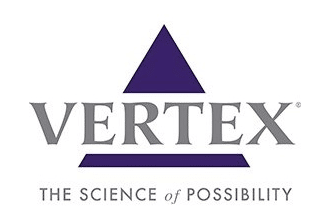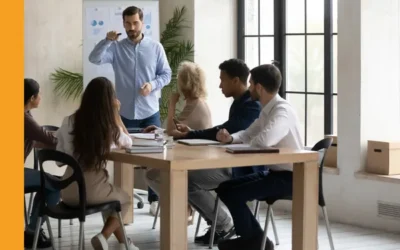An interview with Chris Lorio, Vertex Pharmaceuticals
What does Vertex do and what is your role?
“Vertex is a pharmaceutical organisation that is primarily focused on cystic fibrosis, so we have therapies for patients with cystic fibrosis around the world. We’re based in Boston, Massachusetts, but we have offices globally. My role within Vertex is Head of Field Training and Development, so I’m responsible for our folks who go out and talk about our products to physicians and healthcare providers, as well as our Managed Markets team and our Case Managers. That’s a group that supports patients and care givers who are prescribed our medication. Our Case Management team don’t do any selling – they service patients and caregivers. A lot of our patients are children, so we tend to talk to the caregivers, their parents or whoever is closely related to them and takes care of them, and help them with access to the medication, adherence to the medication and provision of educational resources.”
What sort of different learning and development or training approaches are used at Vertex?
“When possible, we use a blended approach when trying to meet the learner’s needs. So, that’s a mixture of traditional, facilitator-led training, digital learning, Spaced Repetition and different types of visual, auditory or kinesthetic learning, depending on the type of training or development that’s needed. We make sure that we understand going into it what the needs are, and that we address those needs with the learning to reinforce skills, knowledge or behaviour.”
What impact does learning and development have at Vertex?
“One of our values is around innovation and the fearless pursuit of excellence so, if you look at having a group that is focused on learning and development, we can make sure that we’re developing our own teams here and have them be as effective as possible, whatever their role is. We can understand what works and what doesn’t work well, and make sure that for the areas that don’t work that well we provide resources and education to help them achieve their goals as well as the organisation’s goals.
“I think also it helps for attention. People know that Vertex cares about their development, so not just how to do your job and also do it well, but also where you’re going within your career. Whether it’s here at Vertex or at other areas or companies, we’re dedicated to ensuring that we develop you as an employee, so that not only can you provide what’s best for Vertex, but what’s best for you.”
What do organisations need to consider when developing learning and development strategies?
“People need to understand who their customers are. So, to meet the needs of their customers, obviously we’re dealing with multiple generations and people who like to learn in different ways. Most of the workforce in the next ten years will be Millennials and so you need to make sure that, as you develop training, education or development programmes, that you understand what those customers’ needs and wants are and deliver that training in a way that meets the needs of the group. We take a look at that sort of blended approach. We do have some folks that tend to be Generation X or earlier, who like to have your more traditional face-to-face learning and talk amongst themselves as a group, but we do have a lot of folks that like to have their learning delivered to them in an app or on their computer; they want it to be short and simple and sweet versus going to a two-hour lecture. So, we need to be cognisant of that and make sure that, as we develop these programmes, we’re trying to meet those different needs and are looking at different types of blended programmes.”
How have you seen the learning and development landscape change during your career?
“You know, I’ve been in the industry for a long time. I started as a sales rep and I remember that my first e-learning that was a pretty simple PowerPoint with a voiceover. I thought how innovative that was and now those traditional e-learnings are really, I think, looked almost down upon. They’re not engaging and you get saturated with the information and knowledge – and that becomes sort of useless. So, I’ve definitely seen it evolve in the last five years, where we’re getting away from even digital learning and moving towards more customised, app-based deliveries. Call it microlearning – that’s the new catchphrase of the last few years – short chunks of information spaced over a period of time. You see a lot of companies developing this and even technologies that allow companies to develop their own apps and gamification-type platforms to meet the needs of their employees. So, from something that maybe only a few people could do, you can now watch a video online and develop your own e-learning.”
How do you see the future of learning and development for organisations?
“I probably have visions of grandeur of what things could be! I like having options and a lot of this stuff tends to be customised and if you look from a learning stand-point – from the person who’s trying to put it together –you’re trying to meet the needs of a lot of different types of learners so it can be tough. What would be ideal is if there was a place or a platform you could go to that learners themselves could customise and somehow there’s the content that exists, but the learner can customise how they want to receive it. Maybe it’s print-based, maybe it’s video or audio, maybe it’s over a long period of time, or maybe they can choose a couple of different types of reinforcement activities or games to help reinforce that knowledge. It’s not based on what either person who put it together decided, or three or four leaders decided for them. It would be great if it was individually customised, I think that would be ideal.”






